Stuart Aken's Blog, page 336
December 17, 2010
AUTHOR INTERVIEW WITH CHRISTA POLKINHORN
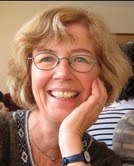 Christa Polkinhorn, originally from Switzerland, lives and works as writer and translator in Santa Monica, California. She divides her time between the United States and Switzerland and has strong ties to both countries. The tension and excitement this "double life" creates informs her work. Among her many interests, aside from writing, are traveling, studying foreign languages and cultures, drawing and painting, meeting people and forming friendships. Christa has published poems in various literary magazines, a collection of poems, Path of Fire, 2002, published by Finishing Line Press, and her debut novel, Love of a Stonemason.
Christa Polkinhorn, originally from Switzerland, lives and works as writer and translator in Santa Monica, California. She divides her time between the United States and Switzerland and has strong ties to both countries. The tension and excitement this "double life" creates informs her work. Among her many interests, aside from writing, are traveling, studying foreign languages and cultures, drawing and painting, meeting people and forming friendships. Christa has published poems in various literary magazines, a collection of poems, Path of Fire, 2002, published by Finishing Line Press, and her debut novel, Love of a Stonemason.Tell us about Love of a Stonemason in a few sentences.
Love of a Stonemason is a story about the struggle of two artists with their past, their family, their creativity, and their love for each other. Told from the point of view of Karla, a young painter, it depicts the world through her artistic sensibility. It takes the reader on a journey full of sights, smells, tastes, and sounds from the south of Switzerland to Italy and the Peruvian Andes. Here is a short blurb: Karla Bocelli is no stranger to loss. When she was five years old, her mother died in a car crash in the south of Switzerland. Her Peruvian father lives at the other end of the world, and a year ago, her aunt and guardian passed away. Now, at age twenty-four, Karla almost gets hit by a speeding car. As if this wasn't fateful enough, Andreas, the driver, turns out to be a sculptor and carver of tombstones. In spite of his profession, Andreas is anything but morbid. Quick-tempered and intense, he exudes a rough-and-tumble energy. After a tumultuous start of their relationship, Karla comes to see in Andreas the "rock in her life," the perfect antidote to her fears of abandonment and bouts of depression. Andreas, however, wrestles with his own ghosts: an alcoholic father who abused him as a child and his own fits of anger. Together, the two artists must confront the demons that haunt them. How did you come to write this particular book?
The initial trigger was an intense personal experience. At the end of 2005, I lost my mother and found myself to be the sole survivor of our immediate family in Switzerland, my only sister and my father having died earlier. Death and its impact—the pain of loss and loneliness—plays an important in the life of the main character in the novel. My father was an artist in his younger years. I talked to a stonemason about the tombstone on my parents' grave. Some of my relatives live in the south of Switzerland and my visits in Italy and Peru also found their way into the novel. The final product was a completely fictional story. While writing Love of a Stonemason, I was rarely conscious of any one particular person, incidence, or experience, which influenced me. Some of it came to me much later. I had many "aha"-moments half-way into the novel or even after it was finished. One of the most fascinating aspects of the creative process is the way consciousness and the unconscious work together to produce something unique and new.
If you have a favorite character in your novel, why that particular one?
Both main characters, Karla and Andreas, are flawed but I fell in love with them as I created them. When I was writing the book, they became more real to me than some of the "real" persons in my life. It was a little unsettling, to say the least.
How can people buy your book?
Love of a Stonemason is available as ebook for the Kindle reader at Amazon, both in the USA and in the UK, and in various other ebook formats at Smashwords. It is also available as paperback at Amazon.
Here are the links: My Author's Page at Amazon.com, USALove of a Stonemason at Amazon, UKLove of a Stonemason in various ebook formats at Smashwords
What qualities make a successful writer?
Passion, willingness to practice one's craft, to revise, and to learn from one's mistakes, patience, insistence, and, yes, some talent.
How do you set about writing a piece?
I don't have a set approach. I have an idea and start writing. After a while, somewhat of a rough outline begins to develop, which I change as I go along. When the piece feels like it's coming together, I sometimes write a blurb or a short synopsis. Once in a while, I write the last chapter early on but I often change it because the work leads me in a different direction.
Beginning writers make many mistakes; what do you think is the most harmful?
Talking about wanting to be a writer and not doing it. I have several friends who told me after a published my novel that they were thinking about writing, but then gave me a ton of excuses why they didn't have enough time and so on. My answer: If you want to write, you have to do it. Stop making excuses. If you only write one page a day, double-spaced, then after a year, you have a 365 page manuscript!
To what extent are grammar and spelling important to a writer?
That's a non-brainer, isn't it? Of course, they are important. You can have the most interesting plot in the world but if your work is full of spelling mistakes, if the style doesn't fit the content, you lose most sophisticated readers.
How much revision of your MS do you do before you send it off?
I revise it myself many times and then I hand it over to a professional editor. First of all, I do my creative writing in English, which is not my native language. My native language is German (Swiss German actually). Although, I have lived more than half of my life in the United States and am fluent in English, I still feel I need a native speaker to point out awkward expressions or flawed syntax. So, yes, I wouldn't think of publishing anything without having it proofread and edited. And even with all the proofreading by a professional editor, some minor mistakes still remain. A work is really never done. I am in the process of translating my novel into German and as a translator, you are really close to the text and you find all those little blunders you didn't notice before. It's aggravating and I have uploaded new versions of my novel several times. That's the one big advantage of ebooks; they are fairly easy to update. With paperbacks, it's a little more cumbersome.
To what extent do you think genre is useful in the publishing world?
I dislike genre labels because they are limiting and often misleading. Is a novel about love and relationships a "romance?" Perhaps, but not necessarily. What do you call a book which deals with love between a man and a woman and at the same time with relationships between parents and children and the creative process of artists? An art romance? An art-family-saga? I think most great works of literature cross genres. The only genres that make any sense to me are "Fiction" and "Non Fiction."
Do you have support, either from family and friends or a writing group?
My friends and family are very supportive. I have joined writing groups in the past and may do so again in the future. Ultimately though, writing is a solitary process. You have to be willing to spend quite a bit of time by yourself. I have known people who join workshops for years and never produce a finished piece of work. There is a great article by Michael Ventura, an American author, about writing: The Talent of the Room . I have it pinned to the wall in my writing corner at home.
If there's a single aspect to writing that really frustrates you, what is it?
That's probably the same for many authors: sitting in front of a piece of paper or a computer screen, chewing your fingers, and not knowing what to write. Writer's block. It happens sometimes.
Is there any aspect of writing that you really enjoy?
There are moments of elation when something inside me clicks and a paragraph or chapter feels just right, when the characters on the page become alive. Those moments make up for all the drudgery of sitting at my desk or on my sofa, struggling with words and ideas. Writing for me is a process of discovery, of exploring things in the world around me and in myself. There is a quotation I recently read by May Sarton, the author of Mrs. Stevens hears the Mermaids Singing: "Love opens the doors into everything, as far as I can see, including and perhaps most of all, the door into one's own secret, and often terrible and frightening, real self." You can replace "love" by "writing" and it would fit.
What are you writing now?
I just finished the rough draft of a second novel with the working title "An Uncommon Family." You can read the first three preliminary chapters on my blog: http://christa-polkinhorn.blogspot.com/
Do you have a website or a blog that readers can visit?
Yes, my website, which also leads to my blog, is www.christa-polkinhorn.com
Thank you very much for giving me the opportunity to be interviewed. I enjoy your blog and the interesting topics!
Christa___________________________________
Christa Polkinhorn
Bookworm Press
Tel/Fax: 310-393-7199
E-Mail: (primary), (secondary)

Published on December 17, 2010 16:00
December 16, 2010
Author Interview with Poppet
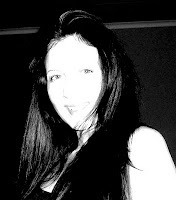 Poppet lives in her own little world, and suffers from an intense crush on Cupid. So much so she's taken up archery to impress him. She's currently giving up her addiction to sarcasm by going cold turkey, loves jelly beans, and has a closet Lamborghini fetish. She also thinks planets rock, because they take up space.
Poppet lives in her own little world, and suffers from an intense crush on Cupid. So much so she's taken up archery to impress him. She's currently giving up her addiction to sarcasm by going cold turkey, loves jelly beans, and has a closet Lamborghini fetish. She also thinks planets rock, because they take up space.Tell us about Darkroom in a few sentences.
Darkroom is a psychological thriller containing horror elements. It's set in Cape Town, where the female character Phoebe escapes to get away from her stalker. Vengeance is the alter ego for religious megalomaniac and psychopath Victor Ward. Raised to believe he's doing God's duty by torturing sin out of sinners (women sinners), Victor chooses to purify Phoebe. She's the first woman he's done this to who survives and moves into phase two of his diabolical plan. He can only marry a resurrected angel who is pure. Using reverse psychology and manipulation Victor insinuates himself into her life and pulls this off. Phoebe ends up falling in love with the very same person who destroyed her life and he continues to undermine her and abuse her as he struggles between his two aspects of Victor and Vengeance.
Exploits came out in November, and that book is about how easy it is for a young woman with no life experience to be sucked into a detrimental relationship. It's told with bags of humour because the story is quite serious. It's written to highlight what I call *victim mentality* - to help readers either identify with the character Stefanie and learn to notice the warning signs of an abusive relationship, or to show friends who all know someone like this, to see how their friend thinks to help them to get through to them and away from a bad relationship. (or buy the book and get her to read it). It's a coming of age story which results in defining what love matters most. It's never what a young woman thinks it is.
What was your journey as a writer?
Long. Many years ago I found an agent who charged me to review my work. I didn't realise it at the time but she was a rip off artist. She told me to gain writing credibility by first getting published in magazines (which I did). I did this for years, and kept going back to her for phase two. I wrote more than a million words worth of books, which after paying her to review each one and achieve the conditions (like getting published for credibility) - she eventually turned me down and said she only publishes diaries (WHAT?!)
Completely frustrated I turned to the online community, submitting to publishers and agents for years (to no avail). I joined Authonomy where the peer writers gave me invaluable writing critiques, divorcing my ego from the end product. This helped me to polish my style and find my writing voice. I received an editor's star for my novel Exploits in August 2009, which was signed with a publisher in March 2010. In August I also managed to get an agent for Exploits (based in Ireland). However she seldom communicated with me, seldom gave me any kind of feedback, and completely ignored me when I sought her advice on signing with the first publisher to accept Exploits. (So I gave up the idea of having an agent as my experience with them was utterly dismal).
Six months after signing Exploits, Darkroom was signed with Wild Wolf Publishing. After six months of editing Exploits I broke away from the contract with that publisher because I was unhappy. Fortunately for me Exploits was signed again just a few weeks later with UK publisher Night Publishing (who assured me that author happiness comes first with them) putting me at ease. Inside of two months of being accepted with Wild Wolf Publishing in the UK, Darkroom was out and available. This makes me a three times signed author in just this year. I also was part of an anthology released in October titled Under A Harvest Moon, where I submitted two stories (one horror -one romance) and designed the cover. I continue to submit work for free and have poetry out each month at SNM Horror Magazine. I do book reviews for a few publishing houses, and continue to write and submit my work out to agents and publishers. Becoming an author is a long journey, a costly journey, and until you've sold many copies and created a decent reputation as an author capable of consistently putting out high quality writing, you will also remain the poor artist. Being published is simply the beginning of another long journey to prove I am worthy of the public's support.
If you have a favourite character in your novel, why that particular one?
I'm going to skip novels here and mention my favourite character is Seithe. He's a demi-mortal who makes life really fun, mysterious, and a whole new experience.
What authors most inspire you?
Authors who have managed to achieve the level of success I hope to achieve. I greatly respect Rowling, because she tried a new genre and it paid off for her (despite it not being popular at the time she created an entirely new genre for children and it paid off for her and her publisher). I like authors who are willing to take a few risks (and publishers who let them).
How can people buy your books?
From my publisher directly: http://wildwolfpublishing.com/Poppet.aspx
Nooks from Barnes & Noble: Exploits here and Fey's Adventures here.
From Amazon and from Smashwords.Darkroom as Kindle.
What qualities make a successful writer?
Tenacity and a good story well told.
How was your experience with Wild Wolf Publishing?
Magnificent. They are efficient, dedicated, and workaholics. They communicate regularly, answer every email quickly, are willing to help their authors every way they can (with some delightful surprises thrown in). They review quickly, once they accept a book they offer the contract within a few days. After signing the contract I did a formatting edit, and the very same month my book came out. They work with you on every level and they accept personal boundaries without question. In short, I think they rock.
Beginning writers make many mistakes; what do you think is the most harmful?
The most harmful is the ego attachment to the work. This makes them deaf to criticism. All criticism ends up being useful. It takes time for any writer to realise this.
What is your writing process?
Obsession and dedication. Commit to write the book, do your research beforehand, then give yourself a deadline and stick to it. I'd like writing to be my career, which means being as dedicated to it as a full time job would entail. Eight hours a day (at least) splitting your time up between blogging, reviewing, social networking, PR, and writing. An author's role is synonymous with multitasking. In this day authors are as responsible for their success as their publishing house. If you don't have a huge marketing budget, you have to subsidize your writing with PR and communicating with reviewers and bloggers to help spread the word about your book. I miss the days when I could write all day. A few years ago I was paralyzed, and as I recovered I had the freedom to slowly type all day. I don't miss being paralyzed, but I do miss having the free time to fully immerse myself inside my latest project and just write.
How much revision of your MS do you do before you send it off?
A lot. I edit each one at least 10 times. And I still miss things. It's not perfect until every surplus thing is removed.
To what extent do you think genre is useful in the publishing world?
I think it helps people purchase books they most enjoy. So yes I think genre is important.
How do you know where to begin any given story?
I begin with the scene in my head and work around it. Adding a beginning and what follows the scene as the bigger picture unfolds.
What sort of displacement activities keep you from actually writing?
Life :). Chores, responsibilities, and blogging and PR take a lot of time away from my love of sitting down to write.
Do you have support, either from family and friends or a writing group?
I have a number of author friends. I rely on them heavily for honest feedback and to share my journey with me.
Is presentation of the MS as important as most agents and publishers suggest?
I'm not sure. I don't think I've had any typical publisher relationships. I can say the publishers I'm with do not demand a lot from me after submission.
How long does it normally take you to write a novel, book, play, poem or story?
Three months for a novel. A poem maybe twenty minutes.
Who or what inspires you?
Everything inspires me. I find inspiration everywhere and in everything. I nearly drowned in January last year and my first thought when I got back to the beach was *now I can write that*. It's awful but I people watch, and listen a lot to pick up nuances for new characters.
If there's a single aspect to writing that really frustrates you, what is it?
I tend to use the same word again and again while I write, and then have to go back eliminating the repetition.
Is there any aspect of writing that you really enjoy?
The feedback that it kept the reader engaged the entire way through, where they didn't want to stop, and read it in one sitting. This gives me such pleasure.
Do you think writing is a natural gift or an acquired skill?
I think writing is a natural gift but editing it well is an acquired skill.
What single piece of advice would you give to writers still hoping to be published?
Don't give up. It takes a lot of rejections to get anywhere. Look at rejection as elimination of people you wouldn't work well with.
What are you writing now?
A romance horror.
Do you have a website or a blog that readers can visit?
Yes. Many: My Amazon Page is here.I'm on Facebook here.And on Twitter here. I blog here.And my website is here.
Given unlimited resources, what would be your ideal writing environment?
A library of my own. That is my dream.
Where do you actually write?
In a corner of my gym where I've set up my office.
Thanks
Poppet

Published on December 16, 2010 16:00
December 15, 2010
Word of the Day
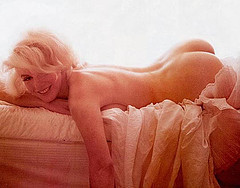 Image by pashasha via Flickr
Image by pashasha via FlickrAbsurd; not consistent with common sense, logic or reason, inviting ridicule, incongruous. 'Marilyn Monroe was worshipped as an ikon of beauty and sexuality but placed in the absurd position of having to appear pure by the bosses of her studio.

Published on December 15, 2010 16:00
December 14, 2010
Interview with Andy Naylor, Author.
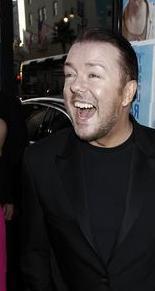 Image via Wikipedia
Image via WikipediaAndy Naylor is a Welsh comedian/writer living in London. He has performed at two Edinburgh Festivals as part of a sketch group and as a stand up comedian, winning the Nicotinel new comedian of the year award in 2007. Devoting most of his twenties to comedy writing has seen him experience some amazing highs, some terrible lows and earn very little money!A qualified journalist, Naylor is inspired by writers and comedians such as What are you writing now?
At the moment I am dividing my time equally between writing comedy sketches for my sketch group and feature style articles for a website. I find that the best method of writing both is to sit down and just tap it all out as fast as possible. I leave punctuation and any ideas of revision until I feel I've written everything I want down. I think I write in a fairly conversational style and this is both a help and a hindrance! Despite being a qualified English language teacher my grammar goes out of the window when I'm putting the ideas down!
What keeps you from writing?
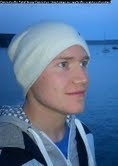 Unfortunately the main thing that keeps me from writing is real life! As many would be writers find, as enjoyable as sitting down and writing is for me it doesn't pay the bills yet. The last few weeks I've been unemployed and thought it would be a very fruitful time for writing. In some respects it has been but the nagging money worries at the back of my mind are never too far way. I think I'm at my most disciplined when I know money is coming in and I only have a short window to get work done. The comedy sketches can be delayed by the fear that an idea is always funny until it hits the paper. As soon as that happens it is open to judgement, rebuttal and ultimately failure! I take any rejection of comedy ideas quite personally and definitely have to work on this.
Unfortunately the main thing that keeps me from writing is real life! As many would be writers find, as enjoyable as sitting down and writing is for me it doesn't pay the bills yet. The last few weeks I've been unemployed and thought it would be a very fruitful time for writing. In some respects it has been but the nagging money worries at the back of my mind are never too far way. I think I'm at my most disciplined when I know money is coming in and I only have a short window to get work done. The comedy sketches can be delayed by the fear that an idea is always funny until it hits the paper. As soon as that happens it is open to judgement, rebuttal and ultimately failure! I take any rejection of comedy ideas quite personally and definitely have to work on this.Website or blog that visitors can visit?
At the moment I'm writing for a website called palebluenews.co.uk and am in the process of building a site for my sketch group at naylorandgant.com.
Single aspect of writing that frustrates you?
I have always aspired to write a book and hope that one day this will be the case. At the moment though I enjoy the instant feedback and response I get to sketches and articles. I think I lack the necessary discipline needed to sit down and work on longer projects. I also tend to write about myself a lot and find this merges into characters I try to write. I admire anyone all writers who can create books that seemingly have no relation to their experiences or life. I find that level of imagination and inspiration staggering. Hopefully as I get less self involved and more mature I will be able to do this myself!
Who or what inspires you?
Real life stories and situations have always inspired me. I love to read Irvine Welsh as I can always picture exactly what he is writing about. I feel that he has lived and breathed these situations and that he knows exactly what his characters will do. Comedy wise, again I like to watch people. I love scrawling through facebook and looking at status updates. To my cynical mind, a bad day and a depressing status update can instantly create an idea for a scene or a character.
Do you have any support from friends, family a writers group?
I've often thought about joining a writers group but time is such a constraint for me that I worry it would be something else that would keep me from actually writing! I also find that by putting my sketches, articles, videos into the public domain now anyway I can receive feedback from varying sources rather than people just interested in writing. It has always amazed me to get praise from the unlikeliest of people as well as constructive criticism.
Where would you like your writing to go?
As my confidence builds from writing longer features, an obvious aim for me would be to write a book. I have ideas that I've been booting around for a while and wonder what it will actually take for me to start putting them down on paper. I would like to receive feedback and opinion from the widest circles possible. Only by constantly being subjected to this will I start to develop the tick skin needed to survive this game! For me to be able to live a semi comfortable lifestyle, purely from writing would be a dream come true.

Published on December 14, 2010 16:00
December 13, 2010
Is There Such a Thing as an Honest Politician?
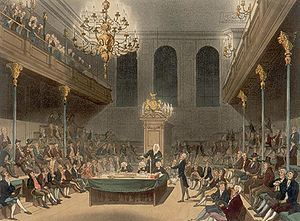 Image via Wikipedia
Image via WikipediaDoes politics only attract the wrong sort of people? Is it a place for control freaks to get their fill of domination of others, grafters to squeeze the public purse for whatever they can steal from it, attention seekers to bask in limelight? Of course, there are some good politicians out there; those who do a good job of the duties the office imposes. But the general picture we receive is of corruption, ambition and condescension. My own local MP doesn't see eye to eye with me on a number of topics, but when he refuses to take into account the views of over 80% of his constituents on a given issue, is he being 'honourable' by following his own conscience, or is he simply failing in his duty to those who elected him? He is, after all, supposed to be our representative in this democratic land, not an abuser of the office he has attained. What do you see when you look at your local representative in government? What do you see when you look at government in general?

Published on December 13, 2010 16:00
December 12, 2010
Anthology: A Sackful of Shorts
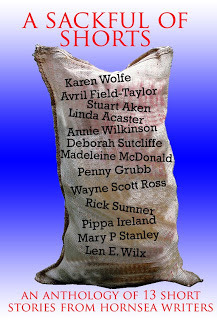 A Sackful of Shorts is an anthology of 13 diverse short stories from Hornsea Writers, a group of published authors from the East Riding of Yorkshire in England. They're a mixed bunch (I'm one of them) with many different books, stories, plays and articles to their names. Here's a little more information about the collection, the individual stories, and the writers themselves:
A Sackful of Shorts is an anthology of 13 diverse short stories from Hornsea Writers, a group of published authors from the East Riding of Yorkshire in England. They're a mixed bunch (I'm one of them) with many different books, stories, plays and articles to their names. Here's a little more information about the collection, the individual stories, and the writers themselves:Karen Wolfe; Squirrels - This story won the 2008 BBC Radio 4 Square Dog short story competition, and the Aesthetica Magazine literary prize in 2009. Karen, writing since early childhood, is never without a headful of Book. Her first love is dogs, and she has, rather appropriately, won the BBC 4 'Square Dog' competition twice in succession, contributing to the American Wolfsongs anthology, and also winning the Aesthetica Magazine literary prize in 2008 and the Village Writers short story competition 2010 with Sparrowban. Her novel, Seers, was published in December 2008, with its sequel, Seers' Moon following in November 2009. She's currently writing Dogwatch, the second in a series of crime-novels (with dogs!) Contact Karen. Interview with Karen.
Avril Field-Taylor; The Gloves Are Off - This story was a prizewinner in 2008 in the Wellington competition.Avril has been writing most of her adult life, whilst working as a librarian. Giving up work and moving to the east coast, she's found success in writing competitions as well as two published novels. In 2009, she won the Emerging Talent prize for Abbey Hill Literary. Her first book, Dearly Ransomed Soul features her 20th century detective, Georgia Pattison, professional singer and sleuth and Murder at Oakwood Grange is a tribute to Sherlock Holmes. Avril is now writing a series of crime fantasy novels set in an alternate Tudor history at Hampton Court Palace and hopes to see them in print soon. Avril's blog. Interview with Avril.
Stuart Aken; The Best Possible Time - This story won first prize in Writers' Forum Magazine Short Story competition and was published in the July/August issue of the magazine in 2007.The story was adapted from the original opening chapter of Stuart Aken's novel, Breaking Faith, before changes to the book as it now appears both in ebook form with Smashwords and as a print edition; see his website for details. He runs this blog, tweets regularly on Twitter, and can be found amongst friends on Facebook, where you're welcome to join him. Many of his short stories have been coontest prize-winners and 3 such have been published in UK national writers' magazine, Writers' Forum. He's also had a play broadcast on UK national radio; BBC Radio 4.
Linda Acaster; Shared With The Light - Linda's published work includes over seventy short stories in genres as diverse as women's, horror, crime, fantasy, mainstream and SF, published in UK, USA and Europe. Her paperback novels include three historicals and contemporary time-slip thriller, Torc of Moonlight, the first of a trilogy set in British university cities. She's also written travel features and opinion pieces for the UK press, and an abundance of articles on the techniques of writing fiction.Two of her historical novels are available as ebooks, Hostage of the Heart and Beneath The Shining Mountains. Torc of Moonlight : Special Edition includes research features and an interview with the author.Linda's blog. Interview with Linda.
Annie Wilkinson; Sidestepping King David - Annie was born into a northern mining family, which provided material for a quartet of novels, A Sovereign for a Song, Winning a Wife, No Price too High, and For King and Country. The novels are set in north east England, starting at the beginning of the twentieth century and ending after the Armistice. All the novels are published by Simon and Schuster and are available from Amazon UK , Fantastic Fiction and Love Reading. A Sovereign for a Song won the Romantic Novelist Association's New Writers' Award in 2004.
Deborah Sutcliffe; Annals Of The Space Clinic (Extracts) - Deborah doesn't 'write' as such, but enjoys wordsmithing when the necessity arises, such as writing indignant letters to the papers, Council, Queen etc. In the case of the 'Annals' she wanted to explore our language and its wonderful spelling. A retired midwife, she believes her past probably explains the direction it took.
Madeleine McDonald; Sisters - This story was first broadcast on BBC Radio Newcastle in 1998Madeleine left school with a shorthand-typing certificate and the intention of working her way round the world. Life had other plans and she got no further than where Alsace borders Switzerland and Germany. Living in France and cycling over the border to work in Switzerland, she coped with overlapping Germanic dialects. Later she worked as a freelance conference translator for international organisations, which took her to diplomatic capitals all over Europe. She didn't start writing until her thirties, when she married an Englishman and moved to East Yorkshire. She's a regular newspaper columnist and has had short stories and humorous pieces broadcast on BBC radio, as well as poems published in anthologies. Her romance novel, Enchantment In Morocco, is available from Red Rose Publishing and Fictionwise. Madeleine's blog. Interview with Madeleine.
Penny Grubb - A Fine Kettle Of Fish - This story was shortlisted in an animal-themed competition in 2001 and first appeared in a UK anthology sponsored by the RSPCA in the same year.Penny is a novelist, writing crime fiction including a series set in the UK featuring PI Annie Raymond. A writer all her life, she penned her first story at age 4 and won her first writing competition at age 9. In 2004 under the name Ellen Grubb she won the Crime Writers' Association's Debut Dagger for her novel, The Doll Makers . In 2010, her novel Like False Money was nominated for the CWA John Creasey Dagger. Her third novel, the Jawbone Gang, is published in May 2011. As well as being a writer, scientist and academic, Penny devotes much of her time protecting writers' rights. Since 2007 she's been Chair of the Authors' Licensing and Collecting Society which collects money due to writers for secondary use of their work, paying out millions of pounds to many thousands of writers every year. Penny's writing has been published in various contexts – novels, non-fiction books, textbooks, academic papers, articles and radio broadcasts. The story in this anthology is one of her rare excursions into short fiction. Contact Penny. Interview with Penny.
Wayne Scott Ross; A Day In The Bowl - This story is part of Wayne's most recent novella and was a prize winner in the prestigious 'New Writers' awards; 'The Black Alice Tales' being a humorous description of life on a Scottish deer estate, based in part on personal experience. Wayne is a multi genre writer, covering both fact and fiction. L. Ron Hubbards Writers of the Future judges commended him on his novella entry, The Seeds of Legend, and he's had success in the Sci-fi or Fantasy section of the Plane Tree competition. He's currently looking for a publisher for the sci-fi short story anthology, Nastassia in the Rain. Recent novel projects include a contemporary thriller set on a small Scottish island, being a mix of lesbian love, drugs, murder and the shipping forecast.A graduate engineer, engineering lecturer and consultant, with many years of senior industrial management experience behind him, he had published 'Continuous Improvements, a Step by Step Guide' by Management Books 2000. It has been extremely well received and is standard reading in a number of major British companies. A recently completed film screenplay, Time and Time Again was favourably received by agents, and garnered good reviews. He's also written articles for diverse publications.Currently he's developing a range of city travel guides for children, each a stand alone adventure story set in the likes of York, Lincoln, Oxford and so on.
Rick Sumner; The Funeral - This story is from an audio tape, Kilby Welfare – Stories from a pit village, read by Paul Copley and Tony Capstick. Rick, born in Manchester in the early thirties, worked for 11 years in coal mines in Lancashire and Yorkshire. He also made several trips as a deck hand on deep sea trawlers before eventually spending 17 years heading a community advice and support team in Manchester's inner city. Rick moved to Hornsea when he retired. He's had quite a number of short stories published in literary journals but his favourite achievement was the production of the audio tape, Kilby Welfare, Stories from a Pit Village. Copies of the tape can be obtained through Rick at his email address but it's possible the stories may soon be available on a CD.
Pippa Ireland; Men! They're All The Same - This prizewinning story was first published in Bonmarché magazine, winter 2005Pippa, published poet and award-winning equestrian, made a big splash in the writing world when she organised La Scala Studios' first short story competition in 2010 as a feasibility study for her University course. The competition attracted almost £2000 in sponsorship, a record entry, and culminated in a prestigious prize presentation, following which two of the winning stories were accepted for publication in a national magazine. For her efforts, Pippa won an award for academic excellence and was offered the opportunity to organise the competition on an annual basis for La Scala Studios. Pippa is currently writing a novel, and has previously had poetry and short fiction published.
Mary P Stanley; Construction Over Water - This story was awarded third place in The New Writer Prose and Poetry competition, 2009Mary is currently completing an MA in Creative Writing at the University of Hull, where she was awarded the Philip Larkin Prize for mixed-genre work in 2008. Her first published literary work, Construction Over Water; An Elegy For Wanda, appeared in The New Writer Collection, July/August 2010. She's previously worked in theatres across Canada as a member of Canadian Actors Equity Association and combines an interest in writing with a love for live theatre.
Len E. Wilx; James Sorts Things Out - Len E. Wilx was born in Yorkshire in 1973. Married to a real life 'James', she currently works full time developing packaging for class A drugs. She has two small children and enjoys food (especially chocolate!), racquet ball and holidays.
So, you can see we're a very mixed bunch. Professionalism, however, links us, along with our love of language and story-telling. We offer one another open, honest and constructive criticism and provide support, advice and practical help where needed. Our weekly gatherings are lively affairs, good-humoured in spite of the frank nature of our discussions. I've gained a huge amount of knowledge and experience by being a member of this group and was delighted to act as editor of this collection of excellent stories. I hope you'll be tempted to read the offering and follow that up by visiting the links to the authors.

Published on December 12, 2010 21:06
AUTHOR INTERVIEW WITH CHARLENE WILSON
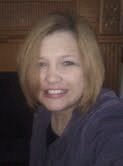 Charlene, please tell us a bit about yourself.
Charlene, please tell us a bit about yourself.Though my life began in Tampa, Florida, I've lived all over the United States and even spent some time in England. Sure do miss the fish and chips. I started writing in my youth when my vivid dreams stayed with me long after I had them. The people and worlds were so amazing and detailed it was like I knew them inside and out. You can meet them in my books. They're alive there now, learning, loving, and experiencing everything they deserve. I currently live in a small community in Arkansas, USA. Yes, cows wander the field across the street. I've worked in a variety of settings, from bookkeeper to detention deputy. Wow, to all the different personalities I've met. I'm the mother of two children, a bird, a cat, and a rag-mop dog. All-in-all, I love my life. It affords me the opportunity to do what I love. Spend time with my family and write, write, write.
Tell us about Cornerstone Deep in a few sentences.
Believe in love. Believe in soul mates. Believe the Wizards of Shilo Manor will correct their wrong. Believe they will infuriate the Noblemen and the Gods of Cornerstone Deep.
How did you come to write this particular book?
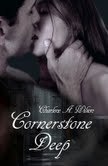 The core of Cornerstone Deep came directly from a dream. The scene in the alley is almost step for step what I saw. That wasn't all to the nightmare though. Dreamer's omiscience told me so much more. I knew the man, though I'd never met him before that time. (He ended up being Cole Shilo) I knew his heart and though what he was doing was freightening, I was drawn to him with my soul. The effects of the spell he cast made my actions innocent, naïve. Though something deep within me cried to be saved, I followed the three men, enraped by being in their presence. Guess where they led me. That's right…I'll let you read the book. Lol. Of course Anna/Mianna became me. And the story expanded from there.
The core of Cornerstone Deep came directly from a dream. The scene in the alley is almost step for step what I saw. That wasn't all to the nightmare though. Dreamer's omiscience told me so much more. I knew the man, though I'd never met him before that time. (He ended up being Cole Shilo) I knew his heart and though what he was doing was freightening, I was drawn to him with my soul. The effects of the spell he cast made my actions innocent, naïve. Though something deep within me cried to be saved, I followed the three men, enraped by being in their presence. Guess where they led me. That's right…I'll let you read the book. Lol. Of course Anna/Mianna became me. And the story expanded from there.If you have a favourite character in your novel, why that particular one?
I would have to choose Cole as my favorite character in Cornerstone Deep. He's so lost-love sick. He's the most romantic hearted character wondering around in my head. On the outside, he's moody, hard-hearted. But get him near his soul mate and his soul takes over.
Where and when is your novel set?
I believe this would best be answered by a character native to Cornerstone Deep. Mianna, if you would?Hello, my new friends. Charlene has asked me to take a moment and talk about Cornerstone Deep. I'm very pleased that she has chosen me to introduce you to my world. Naming her debut novel after my dimension is a great honor. Thank you, Charlene.Actually, Cornerstone Deep is the formal name for Terra. It's the position we hold in the spectrum of planes. As you know, a cornerstone is a vital part of any building or structure. In this case, you could think of an arch. It begins and ends with a cornerstone supporting each base. The meridian cap joins with the midway sections to make the structure. And yes, we have dimensions called Meridian and Midway. Of course, they have their familiar names, just as we do. Our side of the spectrum's arch is called Deep and the other side is called Summit. Hence, Cornerstone Deep.May Arylin's love abide in your heart until next we meet.Mianna.
How can people buy your book?
First and foremost, you can get Cornerstone Deep from my publisher, Class Act Books. But I have a list of outlets on my website. It is available in trade paperback or ebook formats. You may also order it from book stores using the ISBN: 9781935048725.
Beginning writers make many mistakes; what do you think is the most harmful?
Telling themselves that they'll never make it and giving up!
How do you know where to begin any given story?
I like to begin with an emotional tug. Whether it's running from a grizzly bear or breaking up a long term relationship. It endears the readers to the main character and gets them rooting for him through his trials.
What sort of displacement activities keep you from actually writing?
Do you mean the phone? Family duties? Work? Yes to all the above. Lol.
Do you have support, either from family and friends or a writing group?
I believe my daughter is my biggest supporter. She's an avid reader and is absolutely proud that her mother is an author. Others give words of encouragement, but she'd always pushing a little harder. I'm also a member of an online writing group that has helped me iron out my ms. Thanks guys! I couldn't have done this without you!
What inspires you most?
I'm very character driven. I'm one of those authors whose characters talk to them non-stop. Conversations, actions, reactions, and settings all play out in my mind and I have to follow them or end up going back to change what I wrote
Is there any aspect of writing that you really enjoy?
I love watching my characters grow. They're like my children. As the story unfolds and they experience what obstacles are set in their path, I'm constantly amazed at how they handle them.
What single piece of advice would you give to writers still hoping to be published?
Never give up. Never give up. And never give up.
What are you writing now?
Cornerstone Deep was the first book in a series. I'm now working on book two, Bridging the Realms, and revising book three, World Beneath the Rock.
Do you have a website or a blog that readers can visit?
Yes. You can find me at http://charleneawilson.com, My blog is at http://charleneawilson.com/blog/, and the book trailer for Cornerstone Deep is on YouTube here: http://www.youtube.com/watch?v=2AoBur6iMlE&feature=channel. I'm also on Facebook and Twitter.
Thank you so much for having me as a guest!Charlene A. Wilson

Published on December 12, 2010 16:00
December 11, 2010
Smashwords Author Brian S. Pratt to Earn over $100,000 in 2011
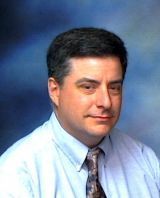 As regular readers will know, I interview writers on this blog, with a particular fondness for indie authors, who have to do everything for themselves. The following is an interview by Mark Coker of Smashwords, with indie author Brian S. Pratt, who shares his experiences (good and bad) of independent publishing. My thanks to both Mark and Brian for their consent to this.
As regular readers will know, I interview writers on this blog, with a particular fondness for indie authors, who have to do everything for themselves. The following is an interview by Mark Coker of Smashwords, with indie author Brian S. Pratt, who shares his experiences (good and bad) of independent publishing. My thanks to both Mark and Brian for their consent to this. 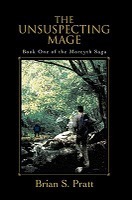
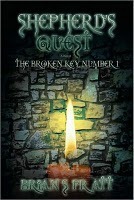 At first glance, Brian S. Pratt of Boswell, Oklahoma doesn't fit the stereotypical profile of a best-selling author. Yet he, and others Smashwords authors like him, represent the future of publishing.
At first glance, Brian S. Pratt of Boswell, Oklahoma doesn't fit the stereotypical profile of a best-selling author. Yet he, and others Smashwords authors like him, represent the future of publishing.Pratt began publishing with Smashwords in early 2009. His first quarterly royalty payment was $7.82. While most authors would find that number discouraging, Pratt was encouraged. It was a start.
In the quarters since, Pratt's earnings have grown, and in recent quarters he's become a veritable breakout success. Last quarter, he earned over $18,000 from sales across the Smashwords retail distribution network. This quarter, with three weeks to go, he's on track to break $25,000. He's on track to earn over $100,000 in 2011 at Smashwords, and up to $200,000 total when he includes his projected Amazon sales. Not one to count his eggs before they're hatched, though, he's fast at work on a next series.
The road to here was anything but easy. At age 43, he's held a number of eclectic jobs, ranging from an U.S. Air Force avionics technician to a taxi driver. Until recently, as he shares in the interview below, he was living below poverty level.
He writes fast-paced, can't-put-it-down fantasy. Pratt started writing because the series authors he enjoyed reading weren't completing their series fast enough. So he started writing books he'd like to read. Unlike some ebook series writers who carve up books into short serialized chunks, Pratt's books are full-length, with most clocking in around 150,000 words.
His writing style is completely his own, and any New York editor would surely bristle at the rules Brian breaks. His most popular series, The Morcyth Saga, is written in the present tense (though he changed to past tense for subsequent series). It's no wonder that after years trying to land an agent and a publisher, he faced unanimous rejection from publishing experts.
Yet readers had other plans for Pratt, as we learn today in this interview.
Lacking a traditional outlet for his work, Pratt self published in 2005, first in print and later ebooks. Today, his ebook sales far outpace his print sales by a factor of more than 100:1.
Today, Pratt has 17 books at Smashwords, and we distribute the books to Barnes & Noble, Apple, Sony and Kobo, as well as to online mobile app catalogs of Stanza and Aldiko.
His Morcyth Saga, a seven-book fantasy adventure series, is by far his most popular collection.
Below in this exclusive interview, Brian S. Pratt recounts the long road to his overnight breakout success.
[Mark Coker] Brian, tell us about your books
[Brian S. Pratt] I have 17 books completed spread across several series. Most are full length, epic fantasy type novels, each anywhere from 120,000-190,000 words. I have a few I call my mini's that are just plain fun and get the reader into the adventure from the get-go. These range from 60,000-90,000 words.
[MC] How did you get started as a writer?
[BSP] Back in 2005, I found myself waiting for several of the main authors to get around to finishing their next novel. The biggest one that annoyed me was The Wheel of Time by Robert Jordan. Don't get me wrong, I absolutely loved the series up to around book 6; then it lost me. Action grew infrequent and far between. It got bogged down in mundane details. Jordan wasn't the only one I was impatiently waiting for. So, on March 1, 2005, I sat down at my computer and decided to write The Morcyth Saga. Figured I could do a good job and write the kind of book I wanted to read. One that had action in every chapter, you followed the main character throughout, and descriptions were down to a minimum. That is exactly what you get in The Unsuspecting Mage; Book One of The Morcyth Saga.
[MC] What training do you have as a writer?
[BSP] Training??? Not a bit. All I started with was the drive to write a story and everything else followed. I ended up writing a seven book series in Present Tense, rife with errors in grammar, spelling, and punctuation. Most of the errors have been fixed in subsequent editions. My word usage was not what one would find in the traditionally produced books, some said it was too simple. I don't know about that, but at least you don't need a dictionary at hand when you read my books. Some have liked it, others less so. My books feel different than others for that reason.
[MC] Tell us about some of the first customer reviews you received, and how you reacted?
[BSP] Reviews, yes there have been some dillies. Here's the first one-star I ever received. It was at Amazon.com less than a month after I first published The Unsuspecting Mage. 1.0 out of 5 stars - January 15, 2006
Present tense is an amateurish way to write.....,
.....and this book reads like it was written for a high school English class. Worst book I've read in a long time. I like lots of books, especially ones written by Robin Hobb, George Martin, and Stephen Donaldson to name but three. These books were well written. This one was not. Just wondering - how many of you are still in high school yourselves?
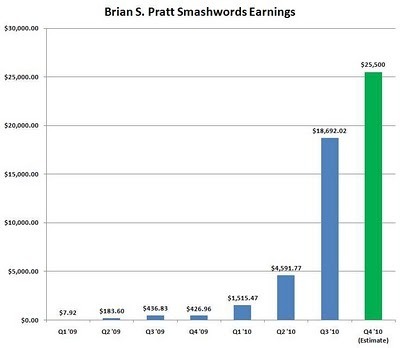 The last line was directed at the other reviewers who said they liked my book.
The last line was directed at the other reviewers who said they liked my book.Needless to say, this devastated me and I stopped writing for a few weeks. Of course, I've had much worse ones since. But then, my books kept selling. And I always told myself that as long as my books keep selling, even if it is marginally, then it would be worth it to continue. I've come to realize that there will always be those that do not like my books, and so what? They simply are not in my target audience. And my target audience is me. I write what I would like to read. And it looks like there are many "me's" out there for I've sold lots of books. If you want to see what may be in your future, check out The Unsuspecting Mage at Amazon.
[MC] You joined Smashwords March 27, 2009 10:26pm (I checked!). Can you take us back to that moment in time, and recall what was going through your mind
[BSP] Let's see. I was a single dad living with three kids and boy, was I poor (under the poverty level). Up until then, I hadn't really thought much about eBooks. I tried Mobipocket for a while and had great sales for three months, then it died off. Sales for my paperbacks, which I had published through iUniverse had fallen off dramatically. Where I had been breaking 4 figures a quarter, I was now less than 600 per quarter and bleeding red. I typed in "self publishing" and saw a quirky little site called Smashwords. It said, Your eBook, Your way. Didn't cost a thing so what did I have to lose? First quarter sales at Smashwords were dismal, 2009-04-07 — $7.92 As it happened, April 7th is my birthday. That was cool. But I wasn't deterred. Books were selling. Sometimes, one or two a week, but they sold. I stayed with it and refused to allow all the naysayers (and there were those by the droves) to stifle my dream. Sales gradually improved and, well, here we are. Can't give up on your dream, EVER!
[MC] Your first quarter at Smashwords you earned $7.92. I've seen some new Smashwords authors jump for glee over a number like that, and others have unpublished their books and quit Smashwords in disgust. What was your reaction?
[BSP] My reaction was "I'm ahead, $7.92" By this time I had been published for a little over 3 years and had seen sales go up and down. Can't make any kind of decision based on just one quarter. Plus, I was getting the hang of how to make Smashwords work for me. You can't just publish your book, sit back and think, "Okay, the money is going to roll in now." It ain't gonna happen. The industry is stacked against anyone who is just starting out. You have to get out there and grab readers by the collar and shout, "Here I am!" They won't find you or care about you until you do.
[MC] Your sales started small but then grew steadily, and in more recent months you've broken out into the best-seller lists at some of our retailers. What was the secret?
[BSP] After receiving my second royalty check which was only $183.60, I figured I needed to get busy and get creative. So I first looked around for a good place to advertise and found Project Wonderful. They suited my needs perfectly; ads would run on websites for pennies a day. I then created a coupon code that would discount my first book for free. I then created a series of ads stating that a free copy was available, all they had to do was copy down the code and go to Smashwords for their free copy. Well, that bombed and bombed badly. Came to realize that I was asking way too much of customer. In order to get my book, they had to go to Smashwords, create an account, put in the code, then download.
People are inherently lazy about shopping, especially in this world where everything is a click away. I pondered on the lack of success with my coupon code, then realized that if I just made the book free, they would only have to click the link in the ad, then download a free copy. Simple. (Keep it Simple-Stupid) I made it so easy for people to download my book, that downloads jumped. Subsequently, sales for books 2-7 jumped as well.
If it's free and downloading is just a click away, people will do it. Very few can walk away from a free deal. Unknown authors are risky to readers and few wish to risk money, or time, to try a book they are not sure they will even like.
When Smashwords signed the deal with Barnes and Noble, my sales jumped 300% that quarter. Barnes and Noble have one of the best "Free eBook" sections and now people could find my book without having to see a small ad. Without Smashwords free copy of book one at Barnes and Noble, I would hardly be doing the sales I am today. That was the one act that set into motion sales the likes I never thought possible for an Indie without agent, editor, or publisher.
[MC] Prior to publishing at Smashwords, multiple agents and publishers rejected you. Tell us about your most memorable rejections.
[BSP] No one wanted me. All the rejection letters were worded very politely, but you can't help but adding phrases to them like "You suck as a writer" or "Your book would be good to keep my table level but as for making money, it has a better chance to spontaneously combust." When I published it through iUniverse, I opted for an editorial review ($300 at the time). They basically said the manuscript would need a serious overhaul before it would become commercially viable. And oh by the way, we do have many such services available…for a price. At the time I thought it was a complete waste of time. But now looking back with five years experience under my belt, many of their comments had merit. Although one must keep in mind, had I continued working with my first book to get it right, I'd still be working on it to this day and all subsequent ones never having seen publication. There comes a point when a writer has to say, "It's ready. Good or bad, let's see what happens." What happened in this case was that there were many people out there who enjoy a good adventure and have since traveled with James through 8 books and are patiently (impatiently might be a better word) waiting for the second installment of the follow-up series, Travail of The Dark Mage.
[MC] What does it mean to you to be described as a self-published author, or an Indie author?
[BSP] The biggest worry a writer had back in 2005 was whether or not they wanted to be stigmatized as "self-published." Once stigmatized, I was told, never again would a traditional publisher take you on. Unless you sold over 50,000 copies. But then, I thought, if I sold 50,000 copies, what would I need a publisher for?
Now, I think of it as a badge of pride. My success is mine, no one else's. Everything that comes from my books, comes because of the hard work I, and I alone, put into it. Others have helped, but I spearheaded it and got it done. Even if today I was to get a publisher, from what I've heard of other author's experiences, they still do most of their own publicity and get tied into restrictive contracts and unrealistic demands. Case in point, the movie Back to the Future. The head of the studio sent the producers a memo in which he stated that "Frogman from Mars" would be a better title. What a nightmare to have to deal with that. As a self-published author I don't have to worry about another's "taste" or "ideas."
Of course, if you fail, again you have no one else to blame. But the only failure you will have, is if you quit. Try new ideas, talk to those who have succeeded, most of all don't give up.
[MC] What's your view of the future of indie authorship, and where do you think traditional publishers fit into your plans, if at all?
[BSP] Indie authorship is here to stay and the traditional publishing houses better get used to it. They also better not discount the effectiveness of its appeal or they're going to regret it. I think they are going to wake up one morning and wonder where all their profits have gone. The better authors will do it themselves because they are going to make more money at it. Also, as the Indie Revolution continues, more and more authors being sought by publishers will be taking hard looks at their contracts. True, if you only have a single book, traditional publishers may be the best route. I make money because I have a series, a completed series, and give the first one away free. Can't beat free for advertising.
As of today, I no longer send query letters (what a waste of time that was) to agents. No longer submit to publishers or even enter contests. My books are not award winners. They are merely fun books. I've tracked winners in the past and they don't always do well.
What would happen if I got an email from a publisher asking for publishing rights? I'd listen to what they have to say. I'd carefully scrutinize any contract for how future books would be affected and so forth. I feel the restriction and demands made by them would far outweigh any increased royalties. But I could be wrong. Never say never to anything where money is concerned.
[MC] Where does print fit into your publishing strategy going forward?
[BSP] Print goes hand in hand with eBooks. You have to have a print copy of your book. I sell maybe 2 or 3 books per 1000 eBooks. Not much, right? Keep this in mind. eBook readers tell their book reader friends about your books. If you want them to buy it, it needs to be available. My biggest hurdle with print has always been pricing. Not much you can do about that, self-publishing print books is expensive no matter where you do it. I'd suggest Lightning Source Inc. they're the best and will put your books before the most customers.
[MC] Imagine you're mentoring a new author today. What three secrets to success would you share, and why?
[BSP] Actually, I've already helped over a dozen authors with getting started. I take the time to answer questions and give advice freely.First thing I advise is to be approachable. Have an email address solely for those contacting you as an author and post it everywhere. If someone sees your book, that email address had better be there too. And remove the spam filter. About a year after I published my first book, I happened to check my spam folder and found 3 emails from readers. Made me mad. Also made me wonder how many others couldn't get hold of me due to my (censored) spam filter. There was this one author, forgot who, but I saw his profile on Amazon. It basically said that he didn't want to be bothered with questions from readers, nor did he want to hear from other authors. And oh by the way, won't you buy my book? –Not word for word, but that was the gist of it. Needless to say, I didn't even look as his book and have since forgotten the guy. I've earned many steadfast fans simply because I responded to them in a personal and friendly manner.
Get a website. They're pretty cheap and are absolutely invaluable. Your readers need a place they can go to learn more about the books, and about you.
Listen to your heart, not reviewers. If you can't stand criticism, find something else to do. Also, when you get your book first published, friends and family always like to post reviews. Well, there are certain things you need to explain to these reviewers before they post.
A. One line reviews are worthless. Saying, "This is greatest book I've ever read!!!" is a waste of time. It means nothing to no one.
B. Tell potential customers about the book. Why is it great? Why did you love it? Why should they spend time and money to read it? Give an example from the book. If you use an example, it gives your review more weight for it lends credence that you actually read the book.
C. Don't talk about just the good. Pick something negative and write about that too. A balanced review is more helpful, and more believable than one that just gushes praise. No matter the book, there has to be something that bugged them. If the book is self-published, there will be something to criticize. I received an email from one reader that said he read a review in which a previous customer complained that my book read like a D&D game transcript. The reader, a gamer by the way, checked it out on that basis alone and ended up buying the entire series. So never assume that a negative review will be negative to all readers.
Here's the biggie. Write. Seems simple doesn't it? You'd be surprised how often we come up with excuses why we can't write. If you're a writer, then you better be writing. Finished a book? When's the next one going to be published? Don't stand still and see if the first one sells well before starting the second. Do you believe in what you are doing? Then for heaven's sake, write. Set a goal. In the beginning, my goal was 20,000 words a week, or an equivalent time editing. I met that and in fact wrote Shepherd's Quest, a 130,000 word book in 5 weeks. I was on roll.
Don't go to your family with your manuscript and ask, "How is it?" If you want an honest answer, go to Fanstory.com and join. You'll find out fast just how good/bad your manuscript is. Friends and family are biased and will have a hard time seeing your work for what it truly is. If you ask for an opinion from someone who knows you, the person answering you knows that they'll have to deal with you afterward so will say "it's great" or give some other affirmative response. They don't want to crush your spirit. I watched this one show once where a guy wore this t-shirt that said, "My mom thinks I'm cool." Enough said.
I have posted lots of useful info for self-published authors, or those thinking of going that route on my website. If you're interested, check out my site, Brian Pratt Books . It's a year old, but most of the info should still be fairly current. It will definitely give you some things to think about.
We're all in this together. Email me should you have questions or anything.
[MC] Every author must compete against hundreds of thousands of other books. What's the secret to breaking out?
[BSP] Write, keep writing, and when your fingers are sore, write some more. The more books you have out, available through the most channels, the better your exposure. Never cancel a channel unless you know another will fill the void. Best channels right now are Smashwords and Kindle. Neither costs you anything but time. From the first sale, you're making a profit. If you give up, it's over. Until then, anything can happen. I'm a prime example of that.
Find ways to get your book in front of people. Don't expect glowing reviews to sell your book. After all, if readers don't find your book in the first place, no amount of "good" reviews will help.
[MC] Now that you've achieved success as a writer, how might your writing change, if at all?
[BSP] I now understand why some authors take a long time in getting out the next book. The more books you have, the more time ends up being devoted to previous titles and other things (this Q&A is a prime example). Editing has always been a sore point with [my] readers, or rather, the lack of it. My books have never seen a professional editor and could use a touch of polishing. I'll be looking into that with the new year.
[MC] Now that you're able to devote full time to your writing, what's your typical day like. What's your process?
[BSP] I spend far too much time on the internet checking sales, answering emails (I love that part) and seeing what's going on in the world of publishing. Smashwords is usually the first page I visit in the hopes that sales have posted. Most days, I'm disappointed. There have been times when I thought, "What the heck is going on? Where are my sales?" But you know, they all come in before the quarter payout, and I've never had a problem with getting my money from Smashwords. [Note from MC: We hear you Brian! Faster reporting is one of our top priorities for 2011]
After that, I try to get some editing done on my newer works, then an hour or so of computer gaming. I write some, check emails again, and so forth. The longer a series goes, the more complex it becomes. You need to take into account all that has gone before, keep your characters consistent, and make it all seem flawless.
[MC] What's coming next?
[BSP] Finish Travail of The Dark Mage. I'm on book 2 and figure the series will be around 5 books. Never know for sure until I'm done. The initial plan for The Morcyth Saga was 10 books. Can you imagine what would have happened if I had contracted for 10 books with a publisher and instead came through with 7? Love being an Indie.
I do have ideas for another 2 series after Travail, as well as off-shoots like The Improbable Adventures of Scar and Potbelly, a series of short adventure books based on the duo from the series. One thing I do know for sure. I will not release another series unless I have it already completed. I hate making readers wait.
[MC] Thanks for sharing, Brian!
To sample or purchase the ebooks of Brian S. Pratt, visit his Smashwords author page

Published on December 11, 2010 16:00
December 10, 2010
AUTHOR INTERVIEW WITH ALAN NAYES
 Alan Nayes was born in Houston and grew up on the Texas gulf coast. After attending medical school at the University of Texas Medical Branch in Galveston, he moved to Southern California where he divides his time and energies between medicine and writing. He is the author of the critically-acclaimed biomedical thrillers, GARGOYLES and THE UNNATURAL. His most recent release is BARBARY POINT, a love story. An avid outdoorsman and fitness enthusiast, he is one of only a few individuals to ever swim across Wisconsin's chilly Lake Winnebago. When not working on his next project, he enjoys relaxing and fishing at the family vacation home in Wisconsin.
Alan Nayes was born in Houston and grew up on the Texas gulf coast. After attending medical school at the University of Texas Medical Branch in Galveston, he moved to Southern California where he divides his time and energies between medicine and writing. He is the author of the critically-acclaimed biomedical thrillers, GARGOYLES and THE UNNATURAL. His most recent release is BARBARY POINT, a love story. An avid outdoorsman and fitness enthusiast, he is one of only a few individuals to ever swim across Wisconsin's chilly Lake Winnebago. When not working on his next project, he enjoys relaxing and fishing at the family vacation home in Wisconsin.BARBARY POINT When Kelly English flies back to Oshkosh, Wisconsin, to close out her father's estate, the last thing on her mind is falling in love. Again. Kelly is twenty-eight and engaged to an older man who is quite wealthy. She's happy, and only desires to make the trip back brief, sell her deceased father's place, and return to her stable life in Los Angeles. However, while taking care of business in Oshkosh, Kelly meets a fishing guide, launching her on an emotional journey she never could have predicted or foreseen. BARBARY POINT is Kelly's story of what happened that one magical week in May on the shores of Lake Winnebago when the ducklings hatch and the walleye run.
Tell us about Barbary Point in a few sentences.
BARBARY POINT is about a young woman from Los Angeles who is engaged to a wealthy older man. When her father whom she never knew because her parents were divorced when she was quite young suddenly dies, Kelly must fly back to Oshkosh, Wisconsin to close out her deceased father's estate. She only wishes to make the trip brief and get home to her stable life in Los Angeles, but unexpectedly, Kelly meets a fishing guide and falls in love.
How did you come to write this particular book?
The story came about because of the many years I spent at our family vacation cottage on the shores of Lake Winnebago. I always wanted to write a story with the lake and cottage as a setting but never had the right ingredients for a thriller or mystery. An agent suggested I attempt a love story—BARBARY POINT is that love story.
If you have a favourite character in your novel, why that particular one?
For BARBARY POINT, Kelly English is my favorite character. She's intelligent, beautiful, ambitious, and caring—everything a male writer could fall in love with. My overall favorite character is one from my first novel GARGOYLES—Amoreena Daniels. She overcame hell of some odds to survive until the last page. In fact, Kelly and Amoreena could probably be good friends—as long as neither had eyes on the same guy.
Where and when is your novel set and why did you make these specific choices?
BARBARY POINT is set in Oshkosh Wisconsin on the shores of Lake Winnebago. My family has owned a comfortable quaint cottage there for decades and it's always a great place to go when you want to fish or boat or just plain relax and enjoy the scenery. Or write!
How can people buy your books?
My first two novels are available on Amazon and Barnesandnoble.com. GARGOYLES and THE UNNATURAL are biomedical thrillers. BARBARY POINT is available at www.xoxopublishing.com.And I've just had a short story published on http://www.literotica.com/stories/showstory.php?id=503955 and http://www.pinkflamingo.com/pages/The-Red,-White-and-Blue-Kitty-by-Alan-Nayes.html titled, The Red, White and Blue Kitty.
What qualities make a successful writer?
I guess that depends on how you define success. Personally, I think anyone who sets out to write a novel and actually finishes it is successful. Monetary success is another issue. I believe three qualities make a successful writer. The individual must possess some talent. More important the individual must be persistent—rejection letters mount far faster than acceptance calls. And third, I firmly believe there is that intangible entity we call luck involved in every success story. But in order for luck to happen a writer must work hard, be persistent, believe in one's project and above all—never give up.
To what extent are grammar and spelling important to a writer?
Needless to say, grammar and spelling are as important to a writer as fast hands and power are to a boxer. In many cases editors and agents won't consider a manuscript if it's chalk full of grammatical and spelling errors.
How much revision of your MS do you do before you send it off?
I revise and revise and revise. Can't emphasize this point enough. REVISE.
How long does it normally take you to write a (novel, book, play, poem, story)?
It usually takes me about a year to complete a full length novel—this includes the first draft and subsequent revisions. I could work faster but I have a full time job. Oh well…
Is there any aspect of writing that you really enjoy?
By far the most enjoyable part of writing is when I finish the first draft. Yes, I realize there will be multiple revisions, but I find it far easier to rewrite than face a blank page—all that white space—that's frightening.
What single piece of advice would you give to writers still hoping to be published?
Persistence. Persistence. Persistence.
What are you writing now?
I'm working on two projects. HEMLOCK POND is a horror story about a young woman who brings her terminally ill child back from the dead. THE LEARNER is a paranormal love story that I'm still in the process of hashing out. It will be compelling, though. More to come.
Do you have a website or a blog that readers can visit?
My website is www.anayes.com and I can be found on facebook under my name. Enjoyed sharing my thoughts with everyone.

Published on December 10, 2010 16:00
December 9, 2010
Traditions, and Why We Should Examine Them.
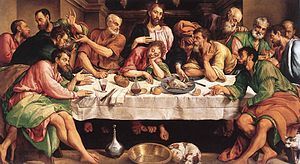 Image via Wikipedia
Image via WikipediaDoes it strike you as odd that we frequently defend peculiar behaviour by calling it tradition? That we hear others defending what, to us, is indefensible, on the grounds that it is traditional? I've heard men from Pakistan defend the throwing of acid over women who refuse their advances simply on the basis that it is traditional. Apart from the obvious inhumanity and cruelty, just how traditional can something be if based on an acid that has been around only a relatively short time? In the UK those who chase foxes with packs of hounds and allow them to tear the caught animal to pieces justify their cruelty by calling it tradition.The bull fighting fraternity in Spain use the same justification for their cruel taunting and killing of bulls in the ring.And the American hunter defends his killing sprees in the same way.On a lighter note, the custom of sending cards to all and sundry on any of innumerable anniversary dates is called tradition. It certainly keeps card manufacturers and the postal services in business.It is still the custom for brides to marry in church and wear white (for purity) even though they and the rest of the family have no belief in God and she is unlikely to be virginal.In religion it is tradition that forbids the eating of pork by certain groups. That this ban was initially a way of avoiding the many parasites harboured by swine seems to have been forgotten along the way. We now know that cooking pork properly will kill the parasites, but the old tradition lives on regardless.And then there are those traditions that fall under the umbrella of superstition. A rabbit's foot for luck (not for the rabbit, it isn't). Avoid walking under a ladder (step into the road and have a car run you over instead). Avoid that black cat crossing your path (the witch for which it was a familiar is no longer a common feature of life, so the fear is irrational, as it always was, of course). 13 is such an unlucky number; but if you're not a Christian, why would it be; does the number of people assumed to attend the Last Supper have any bearing on your life? 7 years of bad luck follow the breaking of a mirror, but any smooth surface performs the same function of reflecting the image, so does tossing a pebble into a still pool sentence you to the same period of ill fortune?Just a few examples. I'm sure you can think of hundreds more. Some are harmless, some ridiculous but many are positively dangerous, cruel or unjust. My point, then, is that perhaps we should examine those things we call traditions and measure their value to society before we blindly follow them.What say you?

Published on December 09, 2010 16:00



